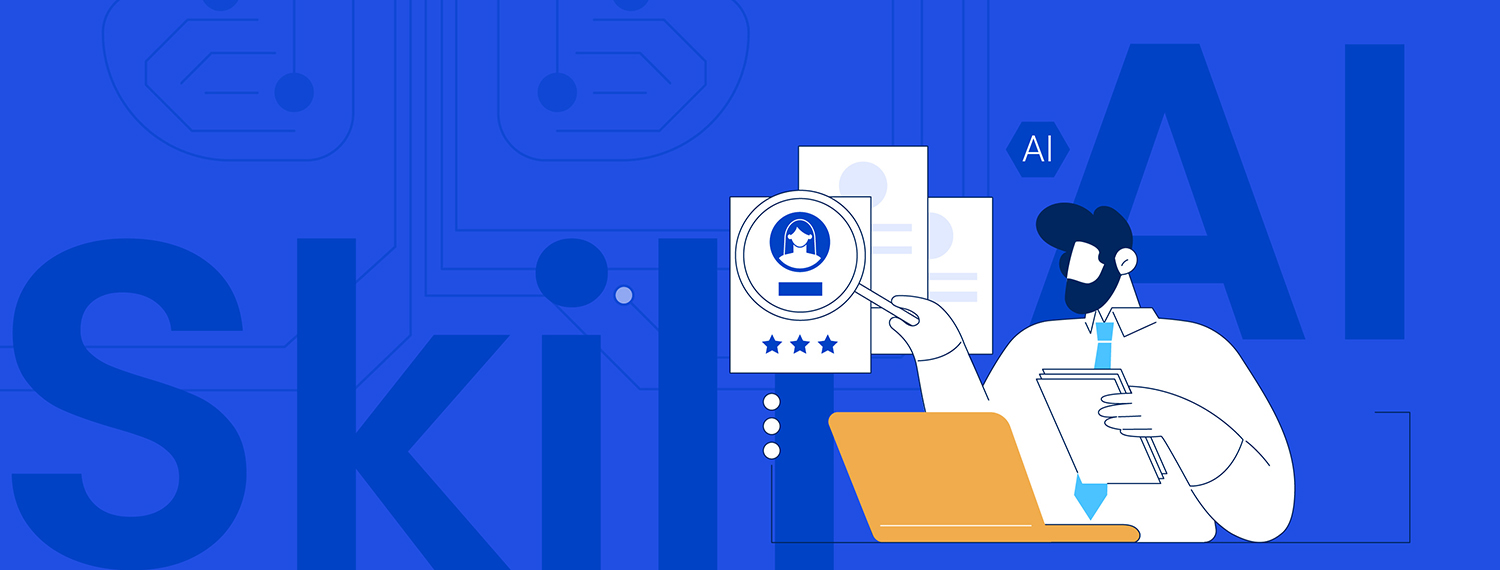In the accelerated evolving AI era, the integration of artificial intelligence has catalyzed the standard shift in the recruitment process. The skills over traditional qualifications are prioritized. There is a tremendous take on talent acquisition where adaptability and competencies abandon rigid credentials.
In this blog, we look into the dynamics of opportunities and challenges innate in this transformative approach to the hiring process.
Evolution of skills first hiring
Gone are the days when the recruitment process was done only with years of experience. The hiring process has undergone a tremendous transformation, and the market demands skills first rather than the traditional educational backup.
Nevertheless, with the emergence of AI and its interpretation into various facets of commerce operations, the ultimate shift towards skills hiring recruitment has become widespread.
Certain factors driving the evolution of the enrollment process include a focus on skills evaluation, efficiency and precision, adaptability to the changing job market, enhanced candidate experience, and automated learning.
Benefits of skill-first hiring
Conveying skill gaps:
87% of professionals acknowledge skill gaps in their companies, yet only one-third are prepared to handle workforce disruptions caused by technological and market trends.
Diverse talent pool:
Despite traditional educational backgrounds, it allows individuals to showcase their skills and competencies.
Innovation and adaptability
Prioritizing skills exposes organizations to a broad range of talents, enhancing innovation and adaptability within the workforce.
Efficiency
Hiring managers can streamline the candidates for the recruitment process by focusing on skills that can reduce the biases associated with the traditional hiring process.
Cost-effectiveness
Skill-first hiring leads to cost savings by reducing the expensive educational requirements, allowing organizations to invest in training and development instead.
Challenges of skills first hiring
Possibilities for biased hiring
Sometimes, the skills evaluated affect the educational background, influencing the hiring process. Unconscious biases like race, gender, and age may also become a problem.
Difficulty in evaluating soft skills
Assessment of soft skills such as collaboration, problem-solving, and adaptability is often complex compared to technical skills. Consequently, it can be a challenge in hiring.
Maintenance issues
Employees hired on a skills-based basis may not align with the company’s long-term objectives and prospects, leading to higher turnover rates and decreased self-esteem among the team.
Time constraints
Initiating skills first may require additional resources for conducting skills assessments, which can be expensive and time-consuming for employees and hiring managers.
Conclusion
In conclusion, skills-first hiring is a dramatic shift in how we associate, attract, and retain talent. By enhancing this progressive approach of AI in the recruitment process organizations can tackle the power of human potential, foster innovation, and unlock invincible new possibilities in changing the business landscape. Thus, it is a strategic necessity for success in the modern era.
At Capleo Global, we make your recruitment easy by providing you with the enormous talent needs fulfilled with the required skills for your organization’s growth.

